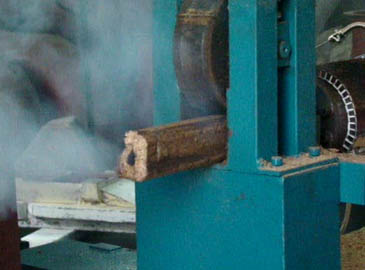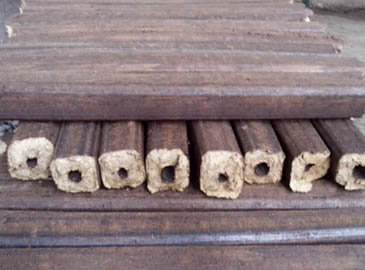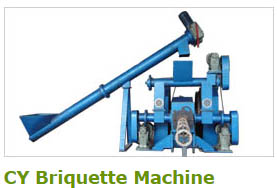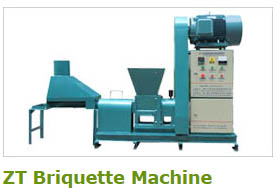- info@woodbriquetteplant.com
+0086 372 5388851
+0086 372 5388851
Organised by the Agricultural Society of Kenya, the fairs offered great marketing opportunities to small businesses by showcasing their products to potential buyers. It also provided an opening to network with suppliers of technologies and raw materials; furthermore it enabled these entrepreneurs to measure themselves on sale and quality assurance strategies with their competitors.
Three of the largest fairs were held in Mombasa (Coast region), Nyeri (Central Kenya), and in the capital city of Nairobi. TheNairobi International Trade Fair, which ran from September 30th to October 6th, 2013, saw many show-goers purchase products from entrepreneurs at the GVEP stand.
According to Mr. Maurice Onzere, GVEP’s Business Services Coordinator, entrepreneurs sharpened marketing skills, created business links and sold items to the value of $8,500 at the events.
One of the attenders who saw his orders increasing, following a TV interview, is Mr. Said Twahir, Manager of Kencoco Ltd. Mr. Twahir uses coconut shells, husks and other biomass materials, which are abundantly available in the coast regions of Kenya, to produce briquettes.“After being aired on Kenya Broadcasting Co-operation, I have received many phone calls from people making orders for briquettes. One of such is to export over 40 tons of briquettes a month to Mauritius. I’m now planning to expand my workshop and hire more staff to cater for the demand,” said the Kencoco Manager.
Speaking to journalists at the Nairobi trade fair, Mr. James Wakaba, GVEP’s Africa Regional Manager, urged the public to adopt cleaner and more modern forms of energy technologies, for both household and institutional use.


Get to know briquette machine, link here
“The businesses we sponsored to attend this trade shows have developed quality and reliable products for a competitive market. Today they are giving the public the opportunity to see for themselves the benefits to be had from these technologies,” he said.
This initiative is part of a larger programme: Capital Access for Renewable Energy Enterprises (CARE2). Sponsored by Sida (the Government of Sweden), the programme is designed to improve capital access in the renewable energy markets in four East African countries, Kenya, Tanzania, Uganda and Rwanda.
Besides, GVEP published a report that looks at the opportunities for businesses operating in the biomass briquette sector in Kenya, in an effort to increase the quality and uptake of this alternative fuel.
The demand for energy in East Africa is increasing both for households, businesses and industry. In Kenya, approximately 82% of the population cooks with biomass (wood and charcoal). Biomass fuels are also used for many institutional, commercial and industrial applications such as cooking in hotels and restaurants, space heating for poultry farmers and heating applications in industrial boilers. Biomass briquettes are a form of solid fuel that can be burned for energy and may offer an alternative fuel for many of these applications. Briquettes have the potential to be a source of renewable energy if they are made from sustainably harvested biomass or agricultural residues.
Charcoal is the primary cooking and heat fuel source within East Africa with an estimated 9,637,000 mt. used annually. Recognized as being the primary reason for habitat loss and increased desertification in Kenya due to exploitive production, supplies are now diminishing and prices increasing. Simple harvesting and kilning technologies are available that can make charcoal production a truly sustainable and profitable land use – resulting in a secure annual income for land holders. By maintaining utilized habitat, soil erosion and desertification is reduced, and grazing capacity improved.
The charcoal briquettes are in quadrangle shape or hexagonal shape, they can also be pressed into ball shape, pellet shape or honeycomb briquette shape. Charcoal briquettes produced by briquette machine are especially suitable for heating in north areas in autumn and winter as the heating fuel. With the features of large density and small volume, charcoal briquette can be used to replace fuel wood and coal.
In response to the rapidly increasing deforestation throughout Kenya, Wild Living Resources has developed an environmentally friendly charcoal briquette. Rather than using older larger trees MakaaZingira is made from the carbonised twigs of fast growing regenerative shrubs. The production of MakaaZingira directly helps to increase the bio diversity of the forest, acacia rangelands and farm lands by placing a livelihoods value on maintaining biodiverse habitat – rather then its clear felling for cultivation.
Recognising the potential of this technology GVEP is supporting briquette entrepreneurs through its Capital Access for Renewable Energy Enterprises (CARE2) project funded by the Swedish International Development Cooperation Agency (Sida). The project aims to improve capital access in the renewable energy markets, across four countries in East Africa. In Kenya, GVEP aims to work with producers of biomass briquettes (amongst other business) to increase the quality and uptake of this alternative fuel. This assessment was conducted to gain a better understanding of the businesses operating in the biomass briquette sector and the type of interventions that are required to inform the programme moving forward. The study also reviewed other initiatives taking place in the sector in Kenya.
The assessment was conducted by Mareco Limited, a business consultancy and financial services company, during May and June this year. It identified over 70 entrepreneurs who either are, have in the past, or will in the near future, engage in commercial briquetting activity in Kenya, with 35 such enterprises interviewed for this assessment. The report analyses the businesses and initiatives that are operating in the biomass briquette sector in Kenya and examines current trends in areas such as feedstock used, machinery used and markets being accessed. In addition the assessment identified some of the main challenges and opportunities for briquette business in Kenya as well as outlining some of the key areas the CARE2 project can add value and the businesses that GVEP could engage with.
Following on from this assessment, GVEP has recruited 25 briquette entrepreneurs to work with in Kenya under the CARE2 programme. GVEP intends to build on the recommendations made in this report through the support offered through the programme.
Briquette Machine for Sale. KMEC is capable of offering a package of project with delicate designs and high-quality briquette equipment to move forward with clients from all over the world! Briquette machine of our company is featured with stable performance, excellent quality, innovative design and reasonable structure. If you need biomass briquette machine, please feel free to contact us.
